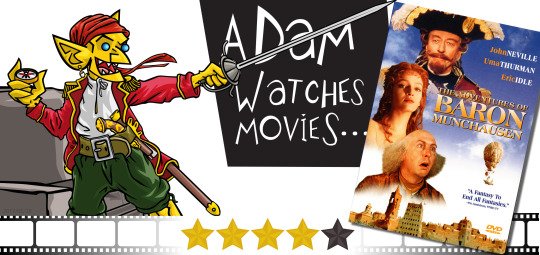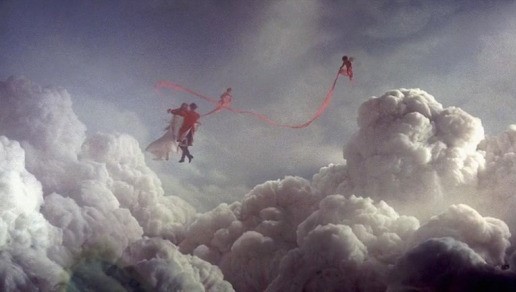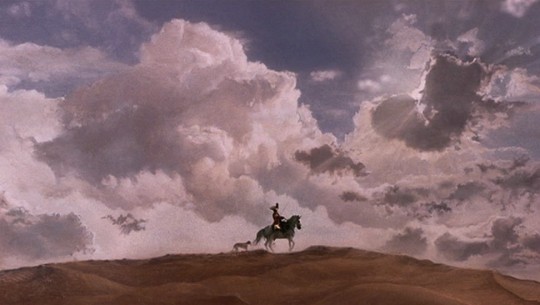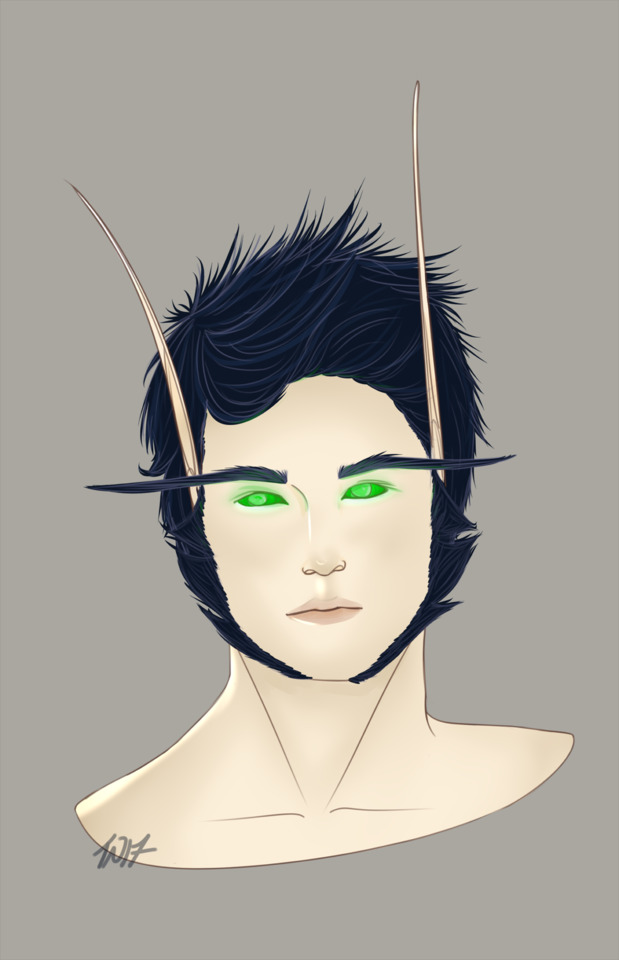#adolphus ramblings
Text
The Adventures of Baron Munchausen (1988)

The Adventures of Baron Munchausen is a lot to take in just one sitting, but what a great-looking, original, whimsical, fun movie! It’s undeniably a Terry Gilliam creation, which is what makes it so enjoyable. When a director is matched with a project that suits them this well, the results demand to be seen.
In an unnamed city besieged by the Turks, the real Baron Munchausen (John Neville) interrupts a play about his many exploits, insisting that it is filled with inaccuracies. Impressed by his many accomplishments, young Sally Salt (Sarah Polley) convinces the baron to seek out his allies: Berthold, the world’s fastest runner (Eric Idle), Adolphus, a sniper with superhuman eyesight (Charles McKeown), Gustavus, armed with incredible hearing and lungs that can create a hurricane (Jack Purvis), and the herculean Albrecht (Winston Dennis). Together, these fantastic characters will surely drive the Turkish army back.
The last time I saw this film, I can’t have been more than 7. I still vividly remembered many scenes. How could you not? Every new place the Baron, Sally, and their allies visit is a treat; a place born out of pure imagination. When you think you're getting acclimated to its distinct sense of unreality, the film will pull back and reveal that what you just saw wasn’t what you thought it was, and then it swings back again and brings us to a world where giants take off their heads, where upside down is right side up, or where tall tales and the truth are synonymous. It’s all done with costumes, makeup, and incredible special effects. There’s a unique quality to this picture because of the time at which it was made. Had this picture been done today, a lot of it would've been achieved via computer, and it just wouldn’t have the same aesthetic. Because of the film's structure and the way the fantasy is brought to life, it feels timeless.
Occasionally, the picture feels a little long. As a whole, it appropriately feels like the mad ramblings of an old man who is filling in the gaps of his greatest adventures with complete fabrications. Nonetheless, a couple of trims here and there - enough to make this film last fewer than its current 126 minutes - would’ve done wonders. When you get to the ending (which is terrific), AoBM makes you immediately want to go back and watch it again, but that’s a bit of a tall order because of the length. My advice? Set aside time to watch this one during the week, and then invite a friend over to watch it with them a day or two later. One of the joys of this picture is how unexpected and unpredictable it becomes. By watching it a second time with someone who has no idea what they’re getting into, you get to relive those feelings, and you’ll also get to mentally note all of the clues that lead to that conclusion.
The Adventures of Baron Munchausen is a feat of imagination. It looks spectacular, the characters are memorable, and many key scenes will be permanently imprinted upon your brain. It’s sly and witty, funny, exciting and so perfectly put together the film becomes an experience. I look forward to catching this bright, colorful, eccentric story again. (On DVD, November 3, 2017)

#The Adventures of Baron Munchausen#movies#films#movie reviews#film reviews#terry gilliam#charles mckeown#john neville#sarah polley#eric idle#oliver reed#uma thurman#jonathan pryce#valentina cortese#1988 movies#1988 films
4 notes
·
View notes
Text

first selfie of the year
41 notes
·
View notes
Text
Some rambling, poorly-organized thoughts on state structures
On the recent nationalism and nations discussion, I don't want to give the wrong impression of my views, lest I seem like some sort of dedicated supporter of homogenous ethnostates.
After all, I've repeatedly said that it seems like practically nobody actually believes in Westphalian sovereignty anymore.
I get that nationalism creates a lot of problems, particularly in the wake of the breakup — or especially, carving up by outsiders — of a multiethnic, multicultural empire. The nigh-impossibility of fitting political borders to the human geography (thus usually leading the human geography to be forcibly transformed to match the political borders instead).
I mean, just earlier this month, when reading about the "highest" High German dialects, I wiki-walked my way into reading about the mess that was post WWI South Tyrol — a mess created by Woodrow Wilson's hard-on for "national self-determination" (and ignorance of the actual demography) — how one guy (Ettore Tolomei) created Italian place names to replace all the Austrian ones, and how its (Austro-Bavarian) German-speaking majority eventually faced the choice of either forced Italianization under the Fascists or relocation to Nazi Germany.
Or this recent thread at the Motte about the history of the Balkans from a couple of natives thereof, with, again, plenty of blame for Woodrow Wilson's dismantlement of the Habsburg domains.
Plus, I've seen plenty of people, left and right, argue that much of the problems of the Middle East are due to how the Western powers, and particularly Britain, carved up the failing Ottoman Empire (and yes, for many of the left-leaning ones, the creation of the modern state of Israel is at or near the top of that list).
One can also see all the messes in the former Soviet Union — Moldova, Transnistria, Ossetia, Abkhazia, Crimea, the Donets Basin, Nagorno-Karabakh, et cetera — as a similar "breakup of an empire" mess.
On the other hand, though, I also recall people once arguing that one of the major harms European colonialism inflicted upon Africa in "the scramble" was carving out territories and drawing up borders willy-nilly, without concern for the existing ethnic, linguistic, and cultural groupings — causing some groups who identified as one people to be split apart in some cases, and in others causing differing groups with historical animosities to be forced together. And further, that "fixing" this would involve African nations reorganizing themselves along ethno-religio-cultural-linguistic lines. (I have a further aside on this I may write-up later.)
And multi-ethnic empires have their own issues. Sure, some have allowed the constituent ethnic groups a fair amount of autonomy, such as the Ottoman "millet" system. But others, not so much — look at what happened to Gaulish and the other continental Celtic languages under Roman rule; or "Hanification" in China.
In multi-ethnic empires, there's always one central, ruling ethicity — usually the one that founded it. And there's a general extractive flow of wealth from the periphery to the core, and from subject peoples to the ruling people (when this flow reverses, and the ostensible rulers are instead paying the other peoples, is often when the Empire begins failing — note that it was the Turkish national movement that ultimately overthrew the Sultan). Plus, said rulers often play the subject peoples against each other.
In short, nationalist states have some problems, empires have some different problems.
Someone in one of the reply chains also made reference to Medieval kingdoms; particularly, to the idea that a ruler was "King of France" — because that's where the bulk of the territory he held was located — rather than "King of the French" — ruler of a specific people. The kind of thing that led to situations like the Spanish Netherlands, Norman Sicily, the King of England also being the Elector of Hanover, the kings of Sweden and Poland each claiming to be the rightful monarch of both territories, and so on.
Despite that, there's much to favor in such a thing. But, as so many people keep reminding me when I bring up my monarchist views, this was the product of a number of specific preconditions. First, the utter disintegration of the western Roman Empire, leaving mostly just hyper-local identities — particularly once the Germanic migrations stopped, and the Franks and Goths assimilated to their local subjects.
Second, that the kings, particularly at the start of any given dynasty, and even sometimes well into the Early Modern period, were basically warlords — I recall reading one historian refer to Gustavus Adolphus as "the worst kind of sociopath," and another argue that the life story of Henry VII is, in its broad strokes, basically the same as any number of Latin American dictators. Look at Clovis I, Harald Hardrata, or William the Conqueror, or…
Third, this state of affairs was also a product of the comparative weakness of those kings. Because, for quite some time, pretty much any local baron who owned a castle was a power to be reckoned with, and kings were often more "first among equals" with these lords — see King John, the Magna Carta, the Barons' War, and so on. This was a product of the military technologies of the time; effective war-fighting was by highly-trained, heavily-equipped elite cavalry — knights — who were expensive… but not so expensive that local lords couldn't afford to maintain an effective retinue of them. Defensive fortifications like castles were highly effective, and slow and costly to besiege.
Then cannons and early firearms came along, which actually served to centralize power — kings were able to use them to take more power and authority from the aristocracy, leading to the replacement of decentralized feudal structures with royal absolutism (and a growing central bureaucracy to run and manage said centralized government). Then later firearms made the average commoner with little training into an effective war-fighter — thus "the Age of the Gun" and resulting democratization of the centralized state.
I'll admit, it's hard to see a pathway back to that sort of mid-level balance — where neither the numbers of the common masses nor the deep pockets of a centralized state provide much advantage in war over a localized petty elite. The "Age of the Gun" may have ended, but our current military modes (with multi-million-dollar equipment) again favor the centralized state — either a nation-state or an empire — over both local authority and the common citizen. Some argue that 4th-generation warfare might see a return of "people power" (though I have my doubts); and I've seen others debate how expensive effective autonomous weapons of a coming "Age of the Drone" might prove, and thus what scale of political organization it favors.
Then there's the city-state, which has even more local autonomy, and which seems to be in many ways a preferable manner of organization. But the problem there, is that they almost always run afoul of the economies of scale in war-fighting. There's a reason those feudal barons, for all their power, ended up pledging fealty to one king or another, and even in the modern era, unless you either have somehow obtained WMDs with an effective long-distance delivery system, or are under the protective aegis of a larger polity with such, a lone city-state is just too easy to push around militarily, if not de-facto conquer.
Sure, Nick Land argued that while nuclear-tipped ICBMs will remain out of reach for microstates, we can expect city-states to proliferate again once DNA technologies mean they can have a WMD deterrent in the form of "$1000 smallpox" or other bioweapons. I don't suppose I have to tell you, particularly now, why having hundreds of labs around the world manufacturing and storing virulent and deadly man-made plagues does not sound like a good idea to me.
Going all the way back to Westphalia, again, I'd like to note that the key principle there was not anything about nationalism directly, but about religion — ending the generations of bloody post-Reformation wars with the "truce" principle of cuius regio, eius religio. That the religion of each state was the business of its government and its government only, and that it's no longer a ruler's place to intervene in a neighboring ruler's territory to rescue the souls of his subjects from vile heresy with fire and sword.
There's a certain echo of this in the proposals of certain libertarian, ex-libertarian, and libertarian-adjacent left-wing people of a loose confederation of microstates wherein, in an example of exit-over-voice, people are free to relocate so as to sort themselves on ideological (compare to religious) lines. Friedman's seasteads, Yarvin's "patchwork," and Alexander's "archipelago" all come to mind as core examples. But these have a number of issues. First, the ways in which they presuppose a level of mobility, of ability and willingness to relocate, that I find unrealistic to expect from much of the population. I note here that it seems to be a very specific sort of person who recommends this sort of solution.
Second, it very much requires a Westphalian live-and-let-live, what happens in the patch next door is none of my business no matter how wrong I believe it to be, attitude. But replace "one true faith" with "universal human rights" and saving souls from heresy with "humanitarian intervention," and we see that, like I said before, such a spirit is quite dead — "all it takes for evil to triumph…", "an injustice anywhere is a threat to justice everywhere", et cetera. Like we saw with Libya, unless you have the WMD-MAD means to prevent it, expect the superpower to enact "regime change" on you if your way of life somehow offends their particular "universal" orthodoxy.
TL;DR: nation-state, empire, feudal kingdom, city-states, patchwork — it's trade-offs all around.
#nationalism#empire#peace of westphalia#nation-state#feudalism#dark ages#fall of rome#ottoman empire#africa#cuius regio eius religio#long#effortposting#rambling
6 notes
·
View notes
Text
Okay, so this is gonna be a random really long rambly post about names and Harry Potter bulshit. I’m on mobile so I can’t add a break but I just thought I’d warn y’all... anyhow here we go
I’m thinking of names for a Bellatrix/Rudolphus kid and I want it to fit with her parents’ names.
Bellatrix seems to be taking the name Bella (a french name that means ‘beauty’) and Beatrice (a french name that means ‘bringer of joy). From this we can surmise that her name has french origins and generally means ‘beautiful bringer of joy’.
Rudolphus’s name is far less complicated. Without thinking to hard it is quite obvious his name stems from the name Rudolph (a german name that means ‘famous wolf’) and Adolphus (a german name meaning ‘noble wolf’). This tells us that his name is of german origin and has the broad meaning of ‘famous and noble wolf’.
Unfortunately it’s not as simple as taking a french name and a german name and smushing them together, we should also look at Black family and Lestrange family naming conventions.
For example, in the black family, a good number of women have names ending in ‘a’ (e.g Narcissa Malfoy, Andromeda Tonks, Dorea Black). And, as we see with Andromeda, they do seem to tend to hold onto these even after they’ve been disgraced (e.g. Nymphadora Tonks). The Black house also seems to prefer names with astrological symbolism (e.g. Sirius Black, Regulus Black, Andromeda Tonks)
Although there is less information on the Lestrange bloodline, they also seem to have the naming convention of having the daughter’s name ending in ‘a’ (e.g. Leta Lestrange, Laurana Lestrange, Rosalia Hughes).
Now, taking ALL THIS into account, the name we should be looking for is a mixture between two names (a french and a german name) that both mean the same or similar things, at least 3 syllables long, ending in an ‘a’ sound, with possible connections to mythology or astrology.
Upon doing an ungodly amount of research using a few baby nameing websites, I have come to the conclusion that Jezebel is the best name, for a number of reasons: Firstly, it just sounds REALLY pretty, secondly, it is a name that not only means ‘impure’ in the Hebrew bible (a perfect name for a death-eater baby) but it also works as a combination between the french name Belle (beauty) and the german name Jenell (knowlage, understanding), lastly, the number that corresponds with the letter j is 10, the exact mean of 2 (b for Bellatrix) and 18 (r for Rudolphus).
So, yeah, stay tuned for Jezebel Lestrange I guess lmao
#oc: jezebel lestrange#harry potter oc#harry potter original character#harry potter#bellatrix lestrange#rodolphus lestrange#hp geneology#harry potter geneology#etymology#oc etymology#onomastics#hp oc#original character#oc#new oc#deatheater#daughter of bellatrix#lestrange family#noble house of black#clover rambles
22 notes
·
View notes
Text
The Adventures of Baron Munchausen (1989) Review

"Your reality, sir, is lies and balderdash and I'm delighted to say that I have no grasp of it whatsoever."
The Adventures of Baron Munchausen is one of the biggest flops in cinema history. Its failure is something that still haunts director Terry Gilliam to this day. But is the film itself actually bad?
Let's find out.
[Warning: This review contains spoilers]
Written by Gilliam and his Brazil co-writer Charles McKeown (who also plays Adolphus) and loosely based on the book Baron Munchhausen's Narrative of his Marvellous Travels and Campaigns in Russia by Rudolf Erich Raspe (itself based on the tall tales told by Hieronymus Karl Friedrich, Freiherr von Münchhausen, a German nobleman who fought in the Russo-Turkish War of 1735–1739), The Adventures of Baron Munchausen was the third and final entry in Gilliam's Trilogy of Imagination, which also included Time Bandits and Brazil. According to the man himself, all three were about the "craziness of our awkwardly ordered society" and the desire to escape it through imagination at different stages in life: a child in Time Bandits, a man in his thirties in Brazil, and finally an elderly man in this film.
Not surprisingly for a Terry Gilliam film, The Adventures of Baron Munchausen suffered through a notoriously troubled production which saw the film's already hefty budget skyrocket (although Gilliam denies it ever went anywhere near the reported $46 million). Sarah Polley, who was only 9-years-old when she played the Baron's unwanted sidekick Sally, found the entire ordeal deeply traumatising while Eric Idle, Gilliam's friend and fellow Python, described the whole experience as "fucking madness" and that one should only see Terry Gilliam films, not actually star in them.
But as bad as the production was, Gilliam has argued that it wasn't the complete horror show it was made out to be. Most of the negative stories were the result of studio politics with The Adventures of Baron Munchausen becoming the unfortunate victim of a regime change at Columbia Pictures that saw Dawn Steel replace David Puttnam as CEO. Steel wasn't interested in making a success of any of the films started by her predecessor and gave the film a limited released (only 117 prints according to Gilliam) with almost no promotion. To the surprise of no one, the film tanked, making only $8 million, with the blame for the film's failure pinned solely on the director.

Like so many box office failures, The Adventures of Baron Munchausen gained the reputation of being something of a turkey in the years following its release. This was rather unfair since The Adventures of Baron Munchausen is in no way a bad film. I don't think it is some misunderstood masterpiece, and it is unquestionably the weakest instalment of Gilliam's Imagination Trilogy, but as a standalone piece of fantasy cinema, The Adventures of Baron Munchausen is actually really rather pretty good.
The film opens in an unnamed European town, currently under siege by the Ottomans, sometime in the late 18th century (a Wednesday to be exact). It is the Age of Reason, a time of logic and rational thought, here personified by the town's mayor, and the closest thing this film has to a villain, Horatio Jackson (Jonathan Pryce). This is a man who wants to run a nice orderly war and has soldiers executed for being too extraordinarily brave because it sets a bad example. As the town is bombarded by canons, a group of actors put on a play about the life and adventures of that notorious teller of tall tales, Baron Munchausen (John Neville). Just as the second act is getting underway who should appeared in the audience but the real Baron himself. Now horribly old and longing for the sweet embrace of death, the Baron is none too happy with how he is being portrayed and proceeds to tell everyone how it really happened.
The Adventures of Baron Munchausen is the kind of lavish, fantastical adventure film that studios don't really make any more. Hell, even at the time it was released, 30 years ago today, it was the kind of lavish, fantastical adventure film that studios don't really make any more. It's the ideal film for such a creative filmmaker as Terry Gilliam. Like the Baron, he also delights in telling tall tales with little care for how realistic they are or how much sense they make. This is his greatest strength as a director as well as his biggest weakness. Gilliam is one of cinema's great visualists, possessing imagination that few can match, but at the same time he's maybe not one of its best storytellers. Many of his films have a rambling, episodic quality to the film and The Adventures of Baron Munchausen is no different.
There is some semblance of a plot about the Baron finding his old servants in order to save the town and defeating the Turks, but it's really just an excuse for sending the Baron and Sally from one fantastical world to the next and for the director to let his creatively run wild. With no one to hold him back, Gilliam indulged himself to the fullest with this film, embracing the Baron’s far fetched flights of fancy with absolute relish. From the clockwork lunacy of the moon to the heavenly grandeur of Vulcan and Venus' ballroom, the whole thing is a feast for the senses (well, two of them at least).

The cast is something of a mixed bag. Neville is wonderful as Baron, bringing the right mix of charm, theatricality and matter of fact-ness to one of literature's most absurd creations. I love that Oliver Reed plays the god Vulcan like a Northern factory boss, forever at war with his disgruntled workers, while Robin Williams (who went uncredited and unpaid) is at his most manic as the King of the Moon. It's a shame, though, that the film never seems bothered about doing anything remotely interesting with any of its female characters, a problem shared by almost all of Gilliam's films. Polley is saddled with a character who seems to do nothing but nag and complain, Uma Thurman (as the goddess Venus) is just there to be admired by everyone, while the rest have nothing better to do than swoon over the inexplicably irresistible Baron.
Time Bandits and Brazil were both notable for having pretty dour endings. Gilliam famously had to fight tooth and nail to get Brazil released without the studio's preferred "happy ever after" ending. For a bit it looked as if The Adventures of Baron Munchausen would continue this trend. After saving the town by driving away the Sultan's army, the Baron is assassinated by Jackson, allowing the Grim Reaper to finally get his boney hands on the man who has eluded him all throughout the film. But just as he is being given a hero's burial, we jump right back to the theatre and discover that this has all just been another one of the Baron's outrageous stories, and not even the first one in which he died. None of it really happened. Except that it did, because the Turks were defeated and the town saved. Which make no sense, but then it wouldn't really be a Baron Munchausen story if it made any sense. And so Gilliam ends this unofficial trilogy on a more uplifting and triumphant note, showing us that while imagination can offer one person salvation in the darkest of times, an imagination shared, through stores, can help save others as well.

Notes and Quotes
--Yes, that is Sting as the solider who gets executed for being too extraordinary. He landed the role because he was Gilliam's neighbour at the time.
--Where does the Baron get all those fresh roses he keeps handing out to all the beautiful ladies he meets?
--It was a brilliant move on Gilliam's part to cast Pryce, the daydreaming hero of Brazil, as this film's bureaucratic villain.
--To the surprise of no one, Oliver Reed spent most of his time on set getting drunk and trying to seduce the teenage Uma Thurman. This was actually her first acting role, but because of the numerous production delays she made two other films before this one was even released.
--As bad as the making of this film was, it still sounds like a absolute picnic compared to the making of The Abyss, that other big budget box office failure of 1989.
Sultan: "Have you any famous last words?"
Baron Munchausen: "Not yet."
Sultan: "'Not yet?' Is that famous?"
Baron Munchausen: "Abandon ship!"
Berthold: "I think the ship's abandoning us."
Horatio Jackson: We can't start escaping at a time like this. What would future generations think of us?
Baron Munchausen: "Go away! I'm trying to die!"
Sally: "Why?"
Baron Munchausen: "Because I'm tired of the world and the world is evidently tired of me."
Sally: "But why? Why?"
Baron Munchausen: "Why, why, why! Because it's all logic and reason now. Science, progress, laws of hydraulics, laws of social dynamics, laws of this, that, and the other. No place for three-legged cyclops in the South Seas. No place for cucumber trees and oceans of wine. No place for me."
King of the Moon: "My kingdom for a handkerchief!"
Baron Munchausen: "Everyone who had a talent for it lived happily ever after."
Baron Munchausen: "I'm Baron Munchausen!"
Berthold: "That sounds nasty. Is it contagious?"
Three out of four tall tales.
Mark Greig has been writing for Doux Reviews since 2011
#The Adventures of Baron Munchausen#Terry Gilliam#John Neville#Sarah Polley#Eric Idle#Jonathan Pryce#Oliver Reed#Uma Thurman#Robin Williams#Doux Reviews#Movie Reviews
3 notes
·
View notes
Text

#FilterFriday
#sometimes i feel cute for like 0.3s so heres a couple selfies#so i can feel nice about myself#for a bit#me#adolphus ramblings#also im a sucker for the gold sparkly ones#glitter??? gold??? u got me im sold
28 notes
·
View notes
Photo

C i h a C i n d e r v e i l
@captainswingbeard | @blencem
51 notes
·
View notes
Photo


A couple npcs that crop up every so often; Mylinne Osh’ara and Errus Firebane.
#World of Warcraft#Blood Elf#Blood Elves#artists on tumblr#The Sunguard#Mylinne#Errus#my art#adolphus ramblings
15 notes
·
View notes
Photo


Happy New Year from a slightly drunk me 💕✨
36 notes
·
View notes
Photo

guess which idiot went and got herself blinded? this idiot did.
featuring winter’s veil gift from @captainswingbeard
37 notes
·
View notes
Photo

commission for @monster-pirate of their warlock, Vivvienne!
#world of warcraft#warcraft#blood elf#artists on tumblr#commissions#The Sunguard#my art#adolphus ramblings
30 notes
·
View notes
Photo

When I started 2017 I said I wanted to draw more, and despite it being one of the biggest and most important so far, I managed to at least start something every month.
This has highlighted that I draw a lot of elves and a lot of portraits, something I’m going to work on switching up.
Now to keep up the work into 2018!
18 notes
·
View notes
Photo

a lil gift for @thanidiel for organising a fantabulous night to cheer us all up after an emotional finale!
16 notes
·
View notes
Photo

when ya life’s gone to shit but at least the snapchat filters are cute and ya hair is long
19 notes
·
View notes
Photo


a pair of handsome boys for @edaigoa
#blood elf#world of warcraft#commissions#artists on tumblr#these looked so much better on my other monitor wtf#please full size to de-fuzz!!#my art#adolphus ramblings
8 notes
·
View notes
Photo

Raid prize for @thanidiel, for winning a transmog competition we held!
This angry gay baby is so pretty god damn.
@thesunguardmg | @curiouslich
#World of Warcraft#Blood Elf#Elf#Silvermoon#The Sunguard#sfw#my art#adolphus ramblings#Thanidiel#she was an absolute pleasure to draw! and thank u for making me laugh so much on me birth
61 notes
·
View notes